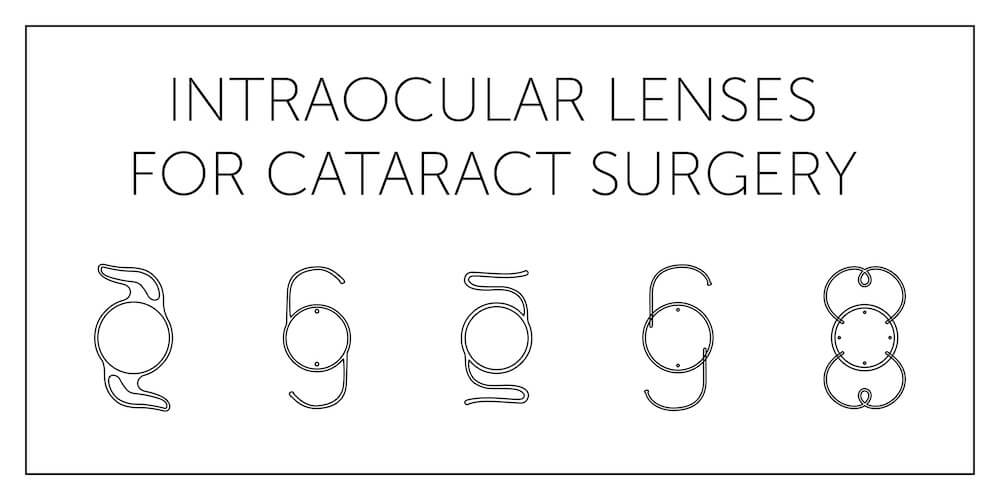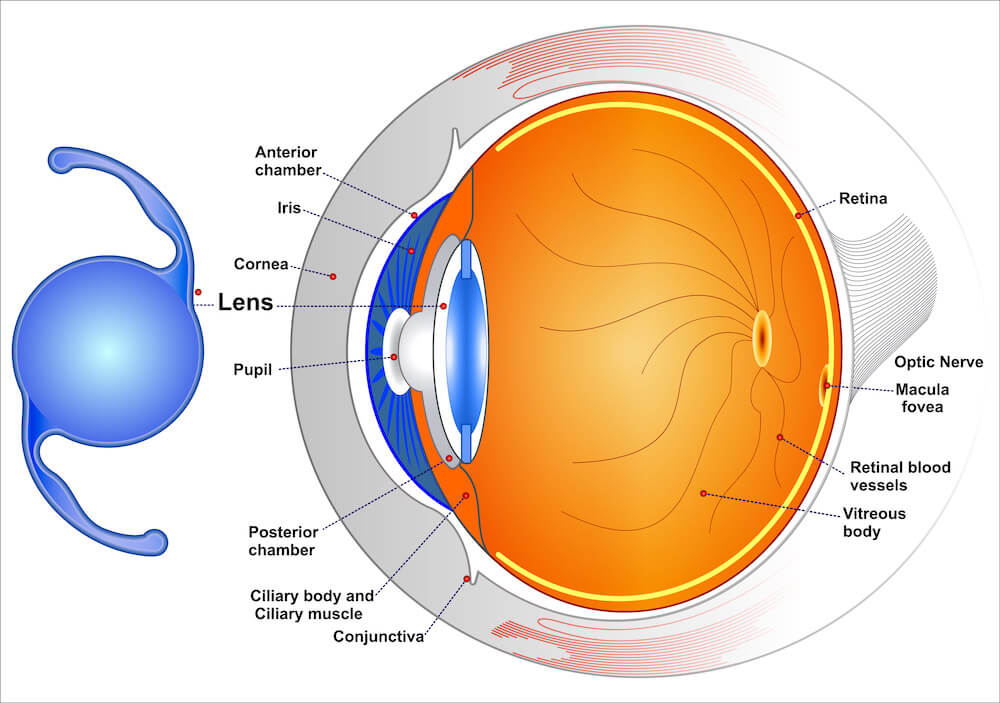
A cataract is the clouding of an eye’s lens. Cataracts form when the two dominant elements that make up our eye’s lens, water and protein, “clump” together and block/blur vision.
This condition is very common and affects nearly half of all Americans by the age of 80. The good news is that you don’t have to live with cataracts.

A cataract may cause minimal symptoms in the beginning stages. As the cataract progresses and increases in size, so does the effects on vision. The following are common symptoms found in patients with cataracts:
Diagnosing cataracts begins during a comprehensive clinical eye exam. During the exam, we are perceptive to the contributing factors of cataracts, including the patients’ symptoms and vision complaints. Regularly scheduled eye exams are extremely important in diagnosing and successfully treating cataracts.
Patients do not have to accept cataracts and the resulting vision loss as a part of aging. When the vision begins to diminish and other symptoms have a negative impact on the patient’s daily life, we will remove the cataract by performing cataract surgery. During this procedure the cataract lens is removed and replaced with an artificial, intraocular lens. This very common and successful procedure is done at the Eye Surgery Center of Hinsdale located on the same property as Smith-Perry Eye Center.
It may be recommended to remove a cataract at its earliest stages. This occurs when a patient has another eye condition (i.e.: macular degeneration or diabetic retinopathy) and the cataract interferes with our ability to examine and properly diagnose a patient.
The necessity and timing of cataract surgery varies with each individual patient. Our team reviews the detailed information with our patients, so together we can make an appropriate decision on when to schedule surgery. Regardless if surgery plays an immediate role in the treatment plan, a cataract patient’s best defense against vision loss is to have regularly scheduled eye exams.
There is an increased occurrence of cataracts as patients continue to age. Other contributing factors include:
When your cataract (cloudy human lens) is removed, it is alike to a camera taking a photograph without a lens; the photo would be blurry. Therefore, anyone undergoing cataract extraction receives a new, man-made lens, called an intraocular lens (IOL), to replace their natural lens.
IOLs are permanent and maintenance free. You cannot feel them, you will never have to clean them, and unlike your natural lens, they stay clear indefinitely. The size, shape, design, material and prescription will be chosen by your doctor especially for you.

After a thorough examination and evaluation, you will be presented various options of IOLs. These IOLs are specially designed for you based upon your doctor’s recommendation and your lifestyle. An IOL counselor will assist you with a detailed explanation of your lens options and answer any questions that you may have.

Cataract surgery is one of the safest and most effective vision correction surgeries available. IOL implantation makes it possible for those with cataracts and age-related eye problems to enjoy the best vision of their lives.
Please contact Smith Perry Eye Center today, if you’d like to determine your candidacy for cataract surgery with intraocular lenses. Our doctor will evaluate your eyes to ascertain which one of the many intraocular lenses available may be right for you.
